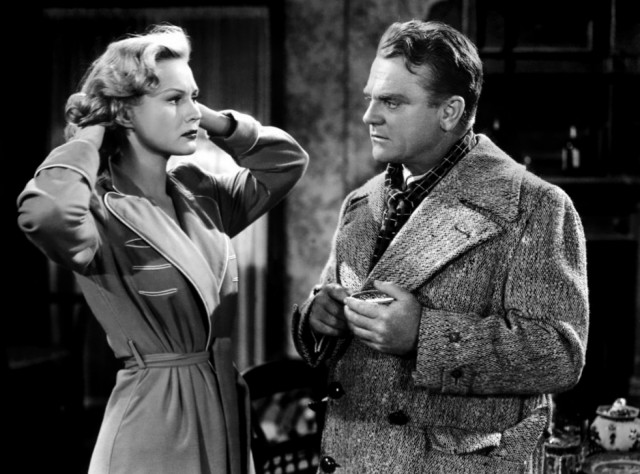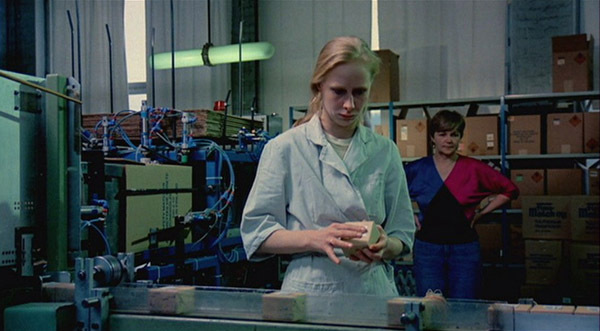BELLE DE JOUR (Luis Buñuel, 1967)
BAMcinématek, BAM Rose Cinemas
30 Lafayette Ave. between Ashland Pl. & St. Felix St.
August 1-3, $14
Series runs through August 14
718-636-4100
www.bam.org
 Luis Buñuel’s alluringly psychosexual masterpiece Belle de Jour caused a sensation when it was released in 1967 because of its heavy dose of sadomasochism mixed with tender love, and with good reason. The film stars the always elegant Catherine Deneuve as Séverine Serizy, a bored housewife who deeply loves her husband, Dr. Pierre Serizy (Jean Sorel), despite their nearly nonexistent sex life; they even sleep in separate beds in the same room. The twenty-three-year-old blonde beauty has intense daydreams of being tortured and raped, the lasting effects of perhaps having been abused as a child, so when she learns of a high-class Paris brothel, she decides to investigate, tantalized by the exciting possibilities. Soon she is known as Belle de jour, “lady of the afternoon,” as men come to lie down with her in the middle of the day, leaving her enough time to get home for her workaholic husband. At first Séverine is terrified of the job, but she is calmed down by Madame Anaïs (Geneviève Page) and eventually finds herself enjoying these secret trysts, so much so that the money doesn’t even matter, only the sensual pleasure she experiences. But when one of her clients, the unpredictable and dangerous thief Marcel (Pierre Clémenti), starts falling for her, her life turns more complicated than she’s ever imagined in all her dark yet playful fantasies.
Luis Buñuel’s alluringly psychosexual masterpiece Belle de Jour caused a sensation when it was released in 1967 because of its heavy dose of sadomasochism mixed with tender love, and with good reason. The film stars the always elegant Catherine Deneuve as Séverine Serizy, a bored housewife who deeply loves her husband, Dr. Pierre Serizy (Jean Sorel), despite their nearly nonexistent sex life; they even sleep in separate beds in the same room. The twenty-three-year-old blonde beauty has intense daydreams of being tortured and raped, the lasting effects of perhaps having been abused as a child, so when she learns of a high-class Paris brothel, she decides to investigate, tantalized by the exciting possibilities. Soon she is known as Belle de jour, “lady of the afternoon,” as men come to lie down with her in the middle of the day, leaving her enough time to get home for her workaholic husband. At first Séverine is terrified of the job, but she is calmed down by Madame Anaïs (Geneviève Page) and eventually finds herself enjoying these secret trysts, so much so that the money doesn’t even matter, only the sensual pleasure she experiences. But when one of her clients, the unpredictable and dangerous thief Marcel (Pierre Clémenti), starts falling for her, her life turns more complicated than she’s ever imagined in all her dark yet playful fantasies.
Based on the 1928 novel by Joseph Kessel, whose L’armée des ombres was turned into Jean-Pierre Melville’s 1969 French Resistance drama Army of Shadows, Belle de Jour features a sizzling yet subdued performance by Deneuve, who would go on to star in Buñuel’s Tristana, which echoes this film in many ways (as does Roman Polanski’s Repulsion). Deneuve, wonderfully clad in Yves Saint Laurent, goes from hot to cold in an instant, her eyes regularly lost in faraway thought, distant and forlorn. Buñuel comments on class and society not only through Séverine and Pierre’s relationship but through several bordello customers with very specific fetishes, including Michel Piccoli as supposed ladies’ man Henri Husson, a role he reprised in Manoel de Oliveira’s ill-advised 2006 sequel, Belle Toujours. Buñuel won the Golden Lion at the Venice Film Festival for his erotically charged story that features a shocking surprise ending that offers new insights upon repeat viewings. Belle de Jour is screening August 1-3 as part of BAMcinématek’s five-week tribute to the master filmmaker, who passed away in 1983 at the age of eighty-three. The series continues through August 14 with such other Buñuel works as Diary of a Chambermaid, Mexican Bus Ride, The Great Madcap, That Obscure Object of Desire, The River and Death, and the superb twin pairing of The Exterminating Angel and Simon of the Desert.
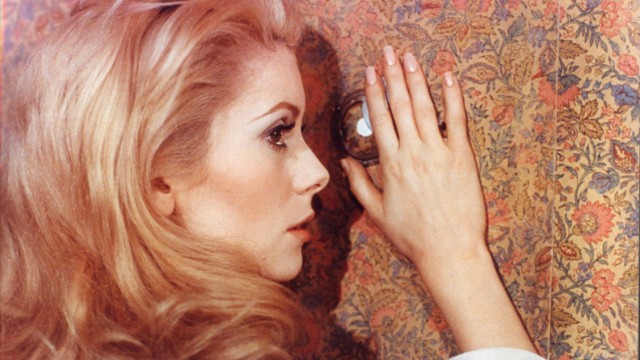
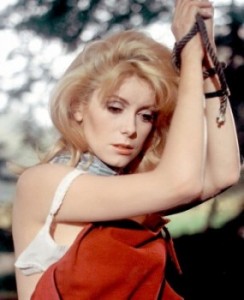
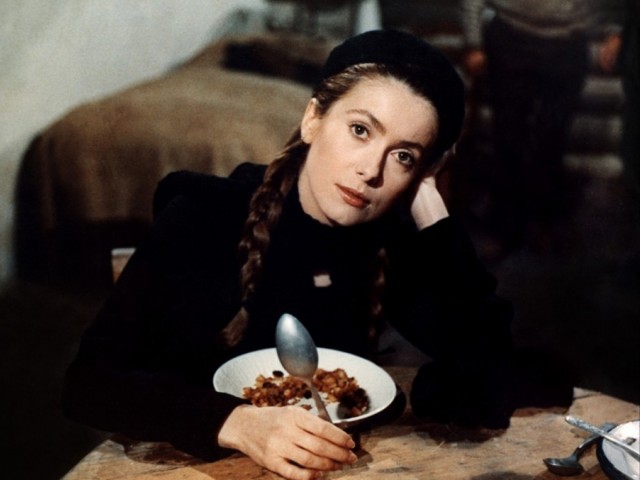
 Luis Buñuel’s adaptation of Benito Pérez Galdós’s 1892 novel Tristana is an often underrated, deceivingly wicked psychological black comedy. A dubbed Catherine Deneuve stars as the title character, a shy, virginal young orphan employed in the household of the aristocratic, atheist Don Lope (Fernando Rey), an avowed atheist and aging nobleman who regularly spouts off about religion and the wretched social conditions in Spain (where the Spanish auteur had recently returned following many years living and working in Mexico). Soon Don Lope is serving as both husband and father to Tristana, who allows the world to pile its ills on her without reacting — until she meets handsome artist Horacio (Franco Nero) and begins to take matters into her own hands, with tragic results. Although Tristana is one of Buñuel’s more straightforward offerings with regard to narrative, featuring fewer surreal flourishes, it is a fascinating exploration of love, femininity, wealth, power, and a changing of the old guard. Deneuve is magnetic as Tristana, transforming from a meek, naive, gorgeous girl into a much stronger, and ultimately darker, gorgeous woman. Lola Gaos provides solid support as Saturna, who runs Don Lope’s household with a firm hand while also taking care of her deaf son, Saturno (Jesús Fernández), yet another male who is fond of the beautiful Tristana. The film is one of Buñuel’s most colorful works, wonderfully shot by cinematographer José F. Aguayo, who photographed Buñuel’s 1961 masterpiece Viridiana, which was also based on a novel by Galdós and starred Rey. Tristana is screening July 19 & 20 as part of BAMcinématek’s five-week tribute to the master filmmaker, who passed away in 1983 at the age of eighty-three. The series continues through August 14 with such other Buñuel works as The Milky Way, The Phantom of Liberty, Wuthering Heights, Belle de Jour, The River and Death, El Bruto, and the superb double-feature pairing of The Exterminating Angel and Simon of the Desert.
Luis Buñuel’s adaptation of Benito Pérez Galdós’s 1892 novel Tristana is an often underrated, deceivingly wicked psychological black comedy. A dubbed Catherine Deneuve stars as the title character, a shy, virginal young orphan employed in the household of the aristocratic, atheist Don Lope (Fernando Rey), an avowed atheist and aging nobleman who regularly spouts off about religion and the wretched social conditions in Spain (where the Spanish auteur had recently returned following many years living and working in Mexico). Soon Don Lope is serving as both husband and father to Tristana, who allows the world to pile its ills on her without reacting — until she meets handsome artist Horacio (Franco Nero) and begins to take matters into her own hands, with tragic results. Although Tristana is one of Buñuel’s more straightforward offerings with regard to narrative, featuring fewer surreal flourishes, it is a fascinating exploration of love, femininity, wealth, power, and a changing of the old guard. Deneuve is magnetic as Tristana, transforming from a meek, naive, gorgeous girl into a much stronger, and ultimately darker, gorgeous woman. Lola Gaos provides solid support as Saturna, who runs Don Lope’s household with a firm hand while also taking care of her deaf son, Saturno (Jesús Fernández), yet another male who is fond of the beautiful Tristana. The film is one of Buñuel’s most colorful works, wonderfully shot by cinematographer José F. Aguayo, who photographed Buñuel’s 1961 masterpiece Viridiana, which was also based on a novel by Galdós and starred Rey. Tristana is screening July 19 & 20 as part of BAMcinématek’s five-week tribute to the master filmmaker, who passed away in 1983 at the age of eighty-three. The series continues through August 14 with such other Buñuel works as The Milky Way, The Phantom of Liberty, Wuthering Heights, Belle de Jour, The River and Death, El Bruto, and the superb double-feature pairing of The Exterminating Angel and Simon of the Desert.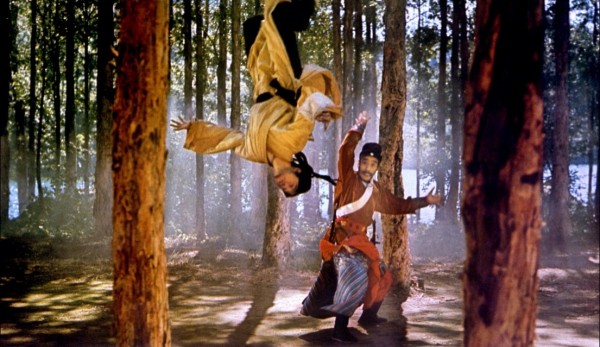
 Watching King Hu’s 1971 wuxia classic, A Touch of Zen, brings us back to the days of couching out with Kung Fu Theater on rainy Saturday afternoons. The highly influential three-hour epic features an impossible-to-figure-out plot, a goofy romance, wicked-cool weaponry, an awesome Buddhist monk, a bloody massacre, and action scenes that clearly involve the overuse of trampolines. Still, it’s great fun, even if it is way too long. (The film, which was initially shown in two parts, earned a special technical prize at the 1975 Cannes Film Festival.) Shih Jun stars as Ku Shen Chai, a local calligrapher and scholar who is extremely curious when the mysterious Ouyang Nin (Tin Peng) suddenly show up in town. It turns out that Ouyang is after Miss Yang (Hsu Feng) to exact “justice” for the corrupt Eunuch Wei, who is out to kill her entire family. Hu (Come Drink with Me, Dragon Gate Inn) fills the film with long, poetic establishing shots of fields and the fort, using herky-jerky camera movements (that might or might not have been done on purpose) and throwing in an ultra-trippy psychedelic mountain scene that is about as 1960s as it gets. A Touch of Zen is ostensibly about Ku’s journey toward enlightenment, but it’s also about so much more, although we’re not completely sure what that is. The film kicks off BAMcinématek’s “All Hail the King: The Films of King Hu” series, which runs June 6-17 and pays tribute to the Shaw Brothers veteran with such other works as The Love Eterne, Come Drink with Me, All the King’s Men, and The Valiant Ones in addition to movies it influenced and/or is related to, including Nicholas Ray’s Johnny Guitar, Tsai Ming-liang’s Goodbye, Dragon Inn, Ang Lee’s Crouching Tiger, Hidden Dragon, and Akira Kurosawa’s Seven Samurai.
Watching King Hu’s 1971 wuxia classic, A Touch of Zen, brings us back to the days of couching out with Kung Fu Theater on rainy Saturday afternoons. The highly influential three-hour epic features an impossible-to-figure-out plot, a goofy romance, wicked-cool weaponry, an awesome Buddhist monk, a bloody massacre, and action scenes that clearly involve the overuse of trampolines. Still, it’s great fun, even if it is way too long. (The film, which was initially shown in two parts, earned a special technical prize at the 1975 Cannes Film Festival.) Shih Jun stars as Ku Shen Chai, a local calligrapher and scholar who is extremely curious when the mysterious Ouyang Nin (Tin Peng) suddenly show up in town. It turns out that Ouyang is after Miss Yang (Hsu Feng) to exact “justice” for the corrupt Eunuch Wei, who is out to kill her entire family. Hu (Come Drink with Me, Dragon Gate Inn) fills the film with long, poetic establishing shots of fields and the fort, using herky-jerky camera movements (that might or might not have been done on purpose) and throwing in an ultra-trippy psychedelic mountain scene that is about as 1960s as it gets. A Touch of Zen is ostensibly about Ku’s journey toward enlightenment, but it’s also about so much more, although we’re not completely sure what that is. The film kicks off BAMcinématek’s “All Hail the King: The Films of King Hu” series, which runs June 6-17 and pays tribute to the Shaw Brothers veteran with such other works as The Love Eterne, Come Drink with Me, All the King’s Men, and The Valiant Ones in addition to movies it influenced and/or is related to, including Nicholas Ray’s Johnny Guitar, Tsai Ming-liang’s Goodbye, Dragon Inn, Ang Lee’s Crouching Tiger, Hidden Dragon, and Akira Kurosawa’s Seven Samurai. 
 For thirteen straight summers, Timothy Treadwell ventured into the wilds of Katmai National Park in Alaska, where he lived among grizzly bears. For the last five of those years, he brought along a video camera and detailed his life with them and his battle to protect the bears (all of which he named) from poachers. “I have no idea if there’s a God, but if there’s a God, God would be very, very pleased with me,” Treadwell says into his camera in Werner Herzog’s brilliant documentary Grizzly Man, “because he can just watch me, how much I love them, how much I adore them, how respectful I am of them, how I am one of them. . . . Be warned: I will die for these animals, I will die for these animals, I will die for these animals. Thank you so much for letting me do this. Thank you so much to these animals for giving me a life. I had no life. Now I have a life.” In October 2003, Treadwell and his girlfriend, Amie Huguenard, were brutally killed and eaten by one of the bears. Herzog, who knows a little something about filming in treacherous locations (Fitzcarraldo, Little Dieter Needs to Fly, Aguirre, the Wrath of God), made Grizzly Man from more than one hundred hours of tape, supplementing that with interviews with Treadwell’s friends and family. They all talk about a much-loved but troubled man who was desperate to be famous. His life with the bears got him onto television with Rosie O’Donnell and David Letterman, but it also got him killed, which some people think was what he deserved for crossing the line and thinking he could survive living with grizzlies. But Herzog shows him to be a thoughtful, compassionate man who just might have found his true purpose in life. (To find out more about Treadwell, check out The Grizzly Man Diaries
For thirteen straight summers, Timothy Treadwell ventured into the wilds of Katmai National Park in Alaska, where he lived among grizzly bears. For the last five of those years, he brought along a video camera and detailed his life with them and his battle to protect the bears (all of which he named) from poachers. “I have no idea if there’s a God, but if there’s a God, God would be very, very pleased with me,” Treadwell says into his camera in Werner Herzog’s brilliant documentary Grizzly Man, “because he can just watch me, how much I love them, how much I adore them, how respectful I am of them, how I am one of them. . . . Be warned: I will die for these animals, I will die for these animals, I will die for these animals. Thank you so much for letting me do this. Thank you so much to these animals for giving me a life. I had no life. Now I have a life.” In October 2003, Treadwell and his girlfriend, Amie Huguenard, were brutally killed and eaten by one of the bears. Herzog, who knows a little something about filming in treacherous locations (Fitzcarraldo, Little Dieter Needs to Fly, Aguirre, the Wrath of God), made Grizzly Man from more than one hundred hours of tape, supplementing that with interviews with Treadwell’s friends and family. They all talk about a much-loved but troubled man who was desperate to be famous. His life with the bears got him onto television with Rosie O’Donnell and David Letterman, but it also got him killed, which some people think was what he deserved for crossing the line and thinking he could survive living with grizzlies. But Herzog shows him to be a thoughtful, compassionate man who just might have found his true purpose in life. (To find out more about Treadwell, check out The Grizzly Man Diaries 